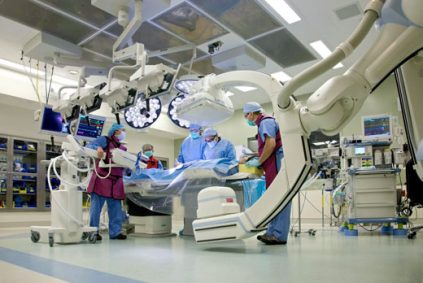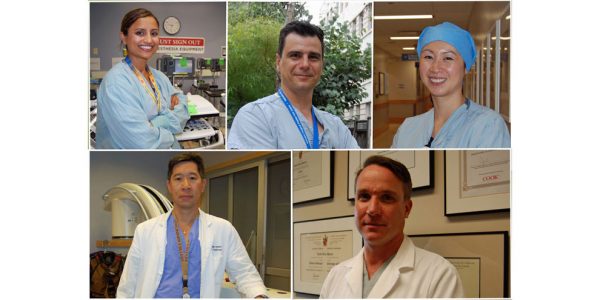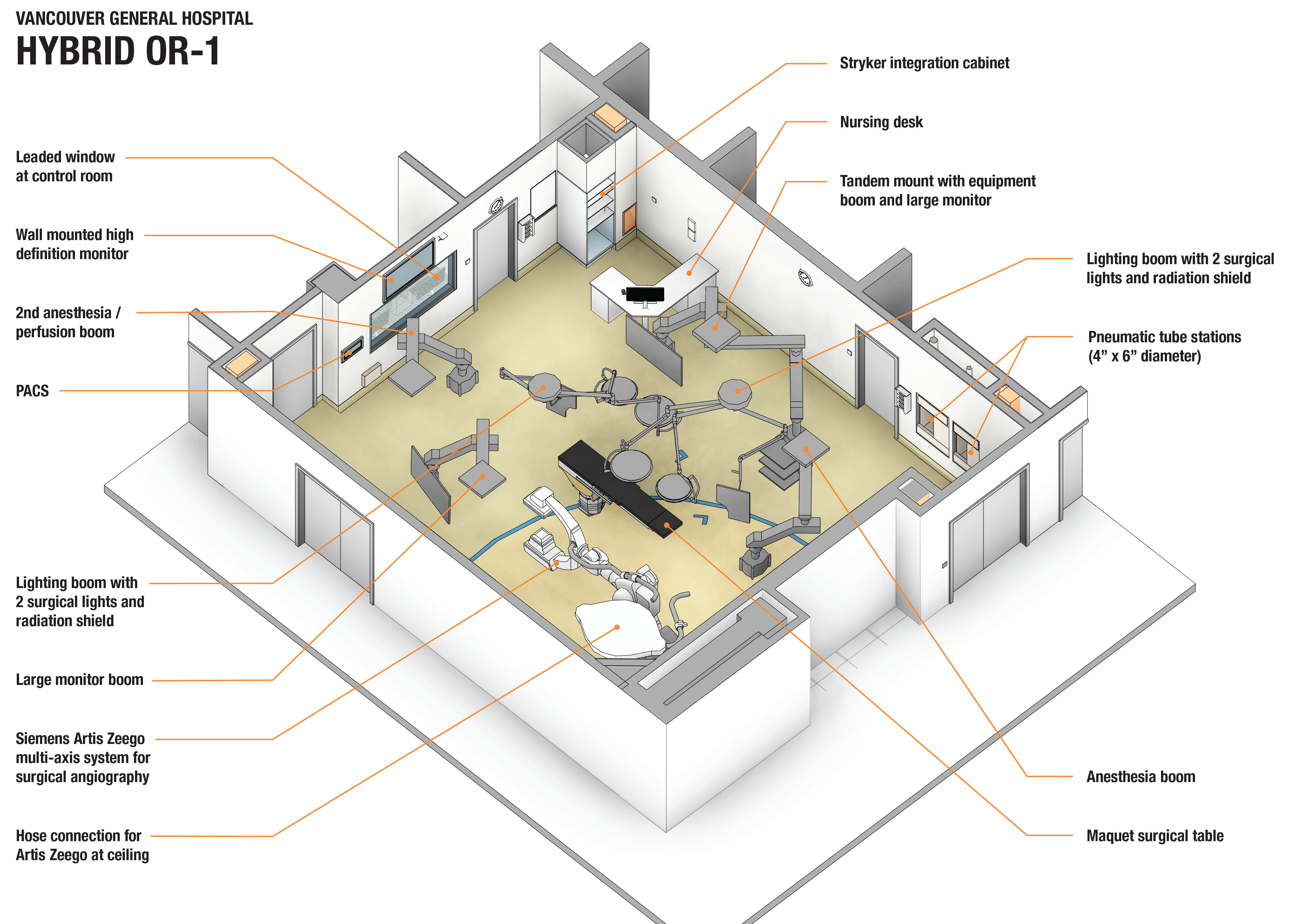Meet the architects of our future
Construction at VGH to transform Operating Room (OR) 1 into a state-of-the-art hybrid OR has begun. In just four short months, Vancouver Coastal Health’s first hybrid OR will open for its first case November 2016.
A hybrid OR is a standard OR with sophisticated, high-definition imaging equipment installed. Functioning like a one-stop shop, hybrid ORs enable high-quality imaging on the same table, in the same setting, eliminating the risks associated with transporting patients and saving critical time when life is hanging in the balance.

In a hybrid OR, imaging and surgery can happen simultaneously. Photo courtesy of Hamilton Health Sciences Foundation.
The purpose-built room will benefit a wide range of patients, including those suffering from blocked arteries and veins, aortic aneurysms, as well as patients who’ve experienced complex trauma.
Drawing on the expertise and perspectives of all disciplines destined to work in the new OR, the design process has been inclusive, in-depth and indisputably exciting for many.
VCH News asked why. Here’s what some of our hybrid OR clinical “architects” had to say.
Why is the hybrid OR project important?
Dr. Stephen Ho: “As a referral centre, VGH gets the most complex surgical work in B.C., but it’s been a real challenge because the portable C-arm X-ray in the ORs today doesn’t have enough power or resolution. The hybrid OR will be equipped to match our world-class surgical expertise.”
Dr. Naisan Garraway: “This will keep VGH at the forefront. Most major trauma centres around the world have a hybrid OR or are looking to build one.”
Dr. Keith Baxter: “The way vascular surgery is practiced is changing. Traditional open surgery is being replaced by less invasive image-guided procedures and the hybrid OR will provide us the optimal environment and imaging equipment to perform these procedures for even better patient outcomes.”
How will patients benefit?
Dr. Naisan Garraway: “Time is life and the hybrid OR will reduce the time to get definitive care because we won’t have to transfer trauma patients back and forth between the OR and Radiology.”
Michelle Kent: “Procedures will be more precise and faster because image quality in the hybrid OR will be that much better.”
Dr. Keith Baxter: “Every surgery has inherent risk, but imaging and surgery can happen simultaneously in a hybrid OR so we can avoid multiple procedures and inhospital stays for vascular patients.”
How will physicians and staff benefit?
Mandy Thandi: “The hybrid OR will ease stressors for anesthesia assistants. The pressure of supporting a patient’s transfer to Radiology is intense. Transfers are potentially life-threatening and if the unexpected happens your colleagues aren’t nearby to help.”
Dr. Ho: “Enhanced shielding will mean better radiation safety for everyone in the OR.”
Michelle Kent: “Equipment booms will eliminate tripping hazards and create an overall safer, more ergonomic environment.”
How would you describe the design process?
Michelle Kent: “I’m not going to lie. It was a little overwhelming at first, but the mock-up exercises were fun and gave us a good sense of the room’s space and how to plan for patient flow. In the end, we’re a team and nursing got a voice in how the room should work, including the importance of our facing the field from the nursing desk.”
Dr. Keith Baxter: “The whole process was eye-opening, and I came to appreciate the complexity of planning these kinds of projects in a collaborative way that brings together different expertise to make decisions.”
Mandy Thandi: “I appreciated that clinicians were engaged early. Although there was a lot of compromising among us, we all pulled together to make decisions that were good for the patient.”
Learn more
- VGH OR Renewal Project website (internal link on VCH Connect)
- Because surgery shouldn’t be guesswork


